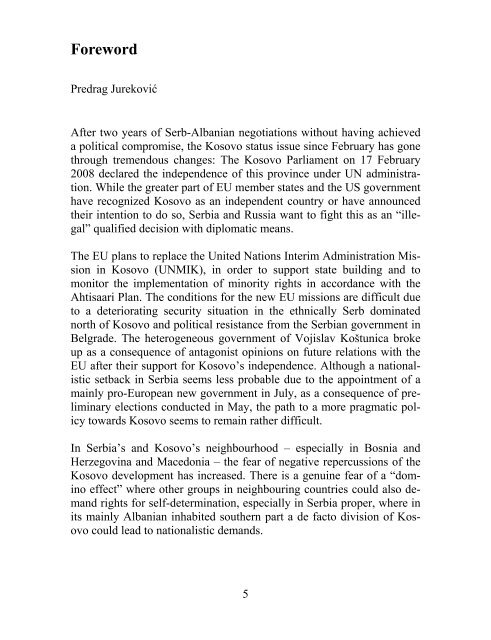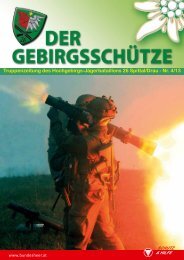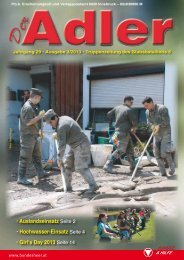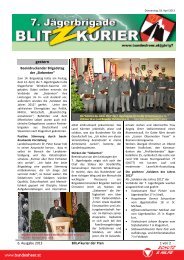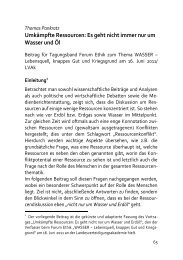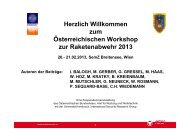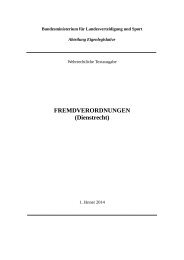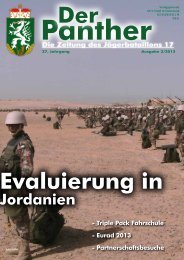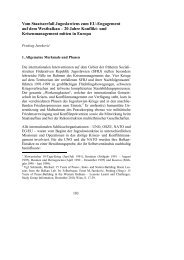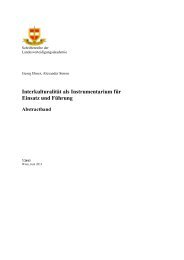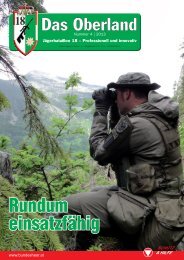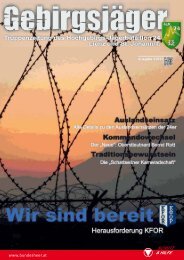Cutting or Tightening the Gordian Knot
Cutting or Tightening the Gordian Knot
Cutting or Tightening the Gordian Knot
Create successful ePaper yourself
Turn your PDF publications into a flip-book with our unique Google optimized e-Paper software.
F<strong>or</strong>ew<strong>or</strong>d<br />
Predrag Jureković<br />
After two years of Serb-Albanian negotiations without having achieved<br />
a political compromise, <strong>the</strong> Kosovo status issue since February has gone<br />
through tremendous changes: The Kosovo Parliament on 17 February<br />
2008 declared <strong>the</strong> independence of this province under UN administration.<br />
While <strong>the</strong> greater part of EU member states and <strong>the</strong> US government<br />
have recognized Kosovo as an independent country <strong>or</strong> have announced<br />
<strong>the</strong>ir intention to do so, Serbia and Russia want to fight this as an “illegal”<br />
qualified decision with diplomatic means.<br />
The EU plans to replace <strong>the</strong> United Nations Interim Administration Mission<br />
in Kosovo (UNMIK), in <strong>or</strong>der to supp<strong>or</strong>t state building and to<br />
monit<strong>or</strong> <strong>the</strong> implementation of min<strong>or</strong>ity rights in acc<strong>or</strong>dance with <strong>the</strong><br />
Ahtisaari Plan. The conditions f<strong>or</strong> <strong>the</strong> new EU missions are difficult due<br />
to a deteri<strong>or</strong>ating security situation in <strong>the</strong> ethnically Serb dominated<br />
n<strong>or</strong>th of Kosovo and political resistance from <strong>the</strong> Serbian government in<br />
Belgrade. The heterogeneous government of Vojislav Koštunica broke<br />
up as a consequence of antagonist opinions on future relations with <strong>the</strong><br />
EU after <strong>the</strong>ir supp<strong>or</strong>t f<strong>or</strong> Kosovo’s independence. Although a nationalistic<br />
setback in Serbia seems less probable due to <strong>the</strong> appointment of a<br />
mainly pro-European new government in July, as a consequence of preliminary<br />
elections conducted in May, <strong>the</strong> path to a m<strong>or</strong>e pragmatic policy<br />
towards Kosovo seems to remain ra<strong>the</strong>r difficult.<br />
In Serbia’s and Kosovo’s neighbourhood – especially in Bosnia and<br />
Herzegovina and Macedonia – <strong>the</strong> fear of negative repercussions of <strong>the</strong><br />
Kosovo development has increased. There is a genuine fear of a “domino<br />
effect” where o<strong>the</strong>r groups in neighbouring countries could also demand<br />
rights f<strong>or</strong> self-determination, especially in Serbia proper, where in<br />
its mainly Albanian inhabited sou<strong>the</strong>rn part a de facto division of Kosovo<br />
could lead to nationalistic demands.<br />
5


